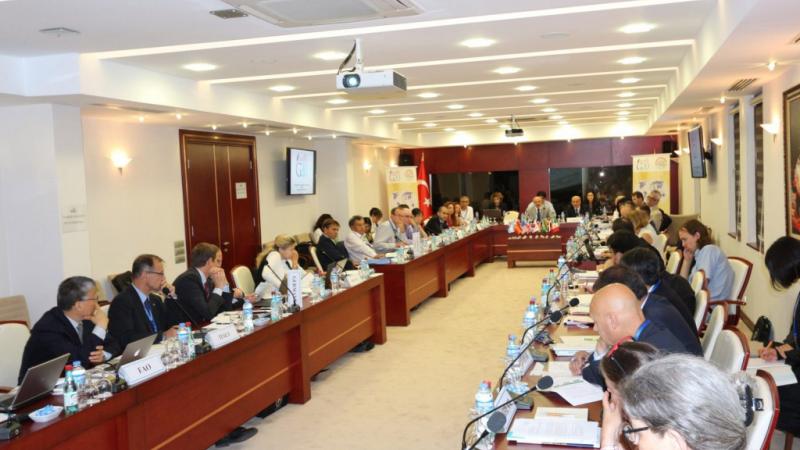Meeting of G20 Agricultural Chief Scientists: Food security & reducing food loss and waste

The impacts of agricultural research on food security and issues related to reducing food loss and waste (FLW) were discussed at the fourth Meeting of G20 Agricultural Chief Scientists (MACS) that took place in Izmir, at the International Agricultural Research and Training Center (UTAEM/IARTC) on 27-29 July, 2015.
Participants included delegations from G20 countries, G20 guests and representatives of international organizations including CGIAR and ICARDA, International Centre for Advanced Mediterranean Agronomic Studies (CIHEAM), Food and Agriculture Organization of the UN (FAO), Global Forum on Agricultural Research (GFAR), Organisation for Economic Co-operation and Development (OECD), and The Wheat Initiative. ICARDA was represented by Dr. Kamel Shideed, ADG - International Cooperation and Dr. Mesut Keser, Country Manager in Turkey.
G20 Agriculture Ministers remarked in the 2015 Ministerial Communiqué that MACS has an important role to play in promoting international collaboration to identify global research priorities, such as addressing climate change and food security, efficient use of natural resources, and improving soil fertility. It also has a significant role in facilitating collaboration between public and private sector organizations in the key areas most likely to drive sustainable productivity gains.
MACS participants considered these needs and proposed ways to support the G20 agenda on agriculture and food security issues, with a particular focus on supporting transition towards sustainable agricultural and food systems. They also agreed to share information and experiences related to agricultural science and technology, on measuring and reducing FLW to support relevant international organizations in their efforts to develop a platform related to FLW.
